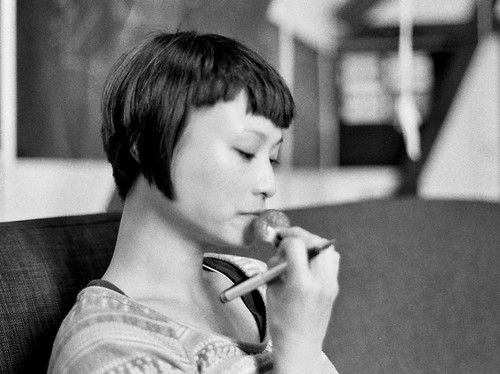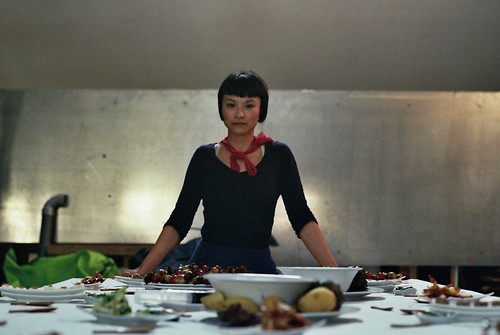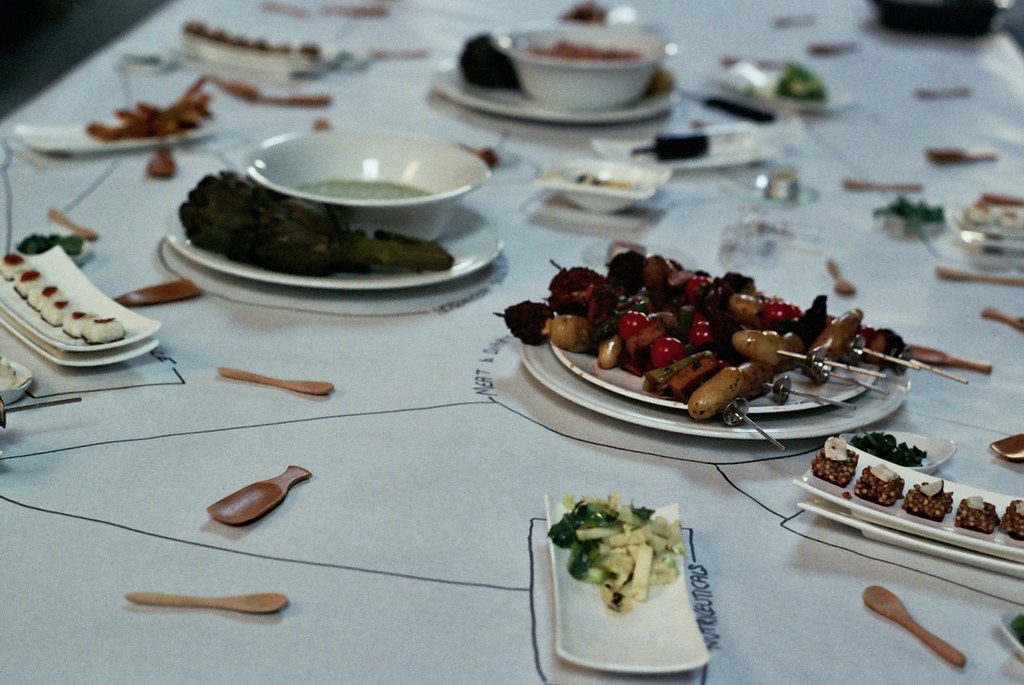Fringejoyride Residency Review
How do you define ‘biotechnology?’
I stopped dead. This was my opening presentation that would mark the beginning of a weeklong intensive microresidency at FoAM. I didn’t quite realize the emphasis on the word ‘intensive’ when founder Maja Kuzmanovic first proposed it to me. It definitely sounded fantastic that the whole core team was offering to spend an entire week helping me decipher my project, open conundrums, and pull out gaping research holes that would eventually be filled in with a gooey dough kneaded by brain-boggling dilemmas and heavily researched analysis… Here was represented fifteen years of expertise in 'transdisciplinary labs for speculative culture' – famous for their dealings with food, biology, ecology, health, and the philosophy surrounding these.
Are you sure that’s not just ‘biology’ instead of ‘biotechnology’?
I first heard of FoAM in a 'how could you not have heard of them' way when I brought my concept of eating invasive species to Ghent, Belgium. Here, I was proposing that a public understanding of biotechnology was in need of expanding beyond glamorous media attention focusing on stem-cell cures and spotlight-grabbing transhumanism and look at everyday experiences – the supermarket tomato, the sugars in our toothpaste, the doctor and dentist we visit, the parrot-less parks, our preserved ‘nature’. I was insisting that every area of the biology we experience in daily life has a dimension of scientific human action. That this was indeed all biotechnology.
So what do you suppose technology is?
- human applications/skills/tools devised for a specific goal?
- stages of ‘progress’ since language?
- 'anything that was invented after you were born' (–Alan Kay)
I suddenly realized that I wasn't working with a bemused academic intimately acquainted with his or her field but never seeing it from a speculative perspective. Here at FoAM I was dancing with a team of speculative experts who tear this stuff apart all the time. This was a week of devil’s advocacy in the format of a sweatshop zen-ship that I was to be extremely grateful for.
I came to FoAM to resolve a very large mental block about my most recent project on a new speculative fringe community, the Bioluddites. In the past four months I’ve been working with Near Now in Nottingham, England, on a way to contextualize a public project, even a movement that eats invasive plants and animals in the Vegetarian Capital of Ghent, Belgium. This spiral of local, social activities supported by the Ghent collaborators at Timelab had lead to a documentary filmed by national TV, ongoing collaborations with scientists at the university, and ‘folk’ practitioners eating invasive species and becoming local celebrities. I even fed the mayor with an invasive Canadian goose leg a la amateur-style cooking.
But what does this experiment mean beyond local enthusiasm? What more could I do with the insights gleaned from these stories? Essentially, how can speculative design use this intensely local project to create a meme that challenges us globally and socially?
So invasive species are the Bioluddite’s biotechnology (because previously invasive species were a scientific glitch)?
I'd been fascinated by the story of the Luddites and the sense of ‘city pride’ their history had brought to Nottingham. Luddites were nineteenth-century activists making a stand to save their traditional social models and critiqued the profit-driven production processes enabled by machines in the industrial revolution. But nowdays, being a ‘luddite’ is commonly interpreted as someone that doesn’t use Twitter or a smart phone, or, according to www.urbandictionary.com, 'generally claims things were “just fine” back in the day, and refuses to replace/update failing equipment/software/computers on the basis that they were just fine 10 years ago.'
I proposed that the modern relevance of the Luddite movement perhaps lay more suitably in the world of a broader, everyday human experience-centred definition of biotechnology, because biotechnology is pervasive in our everyday lives and most of the time outside of our control. Perhaps the Bioluddites could help us navigate the overwhelmingly vast spectrum of biotechnology that we depend upon, and find a twenty-first century model for practicing the principles of Ludditism – becoming a role model for a new form of activism that actively seeks productive benefits on top of a critique of modern society?
If this wasn’t ambitious enough, I was also hoping to convert the people at FoAM into Bioluddites…
Have you read the Biopunk Manifesto?
I was ashamed to say, I had not. But after much reading, fact-checking and many, many debates I was happy to conclude that although the agenda of biohackers and biopunks is to empower everyone through science literacy, there is definite room for Bioluddites to play a counter part that navigates through large systems and existing modern lifestyles rather than on a laboratory scale. The Bioluddites deal with a world where biotechnology leaks out of the laboratory (whether it’s a pharmaceutical laboratory or a biohacker’s test tube) and into the everyday experience of mundane survival in the modern world. Whereas biohackers seek to disrupt conventions within the scientific community, the Bioluddites would work on the wider scale of society at large.
That was just day one…
Along with the FoAM participants, for the remaining week I pursued every data source possible alongside my own previous hidden, disorganized, long-procrastinated research to find out what these Bioluddites might look like, believe in, approve of. It was like being part of a detective team, slowly finding clues to navigate what a Bioluddite would eat or wear, how they might behave and organize themselves, and what their agenda might be. These exercises brought us one step closer to this speculative community, drawing upon a spectrum of people who already practice against technology:
- the Amish in their use of religion
- the Luddites, using military power
- the Neoluddites (except for their association with the infamous Unibomber) with their use of literature
In order to socialize luddism in our age of peer-to-peer and TED Talks, the Bioluddites would look like no average activist. In fact, their roles would be closer to modern-day life-coaches, gurus and mentors, and through a combination of information, inspiration and entertainment navigate and ‘nudge’ us through the plethora of biotech consumer choices.
In the public presentation for my research gathering, we outsourced brainstorming on attendees, along with biotech question-themed foods featuring our list of real-life conundrums surrounding biotechnology. The responses were surprising. Most of the answers skipped the question’s details and delved directly into the systems behind and the expectations of biotechnology. The critiques were of the biotechnology corporations that stretched beyond the human scale. With the help of the FoAM team, we’ll prototype some of the symbols that are incorporated into a Bioluddite’s coaching environment.
Bioluddites do not claim to be another revolutionary movement with a manifesto; they would have more a charter of professionalism. Bioluddites are a gap in the knowledge market somewhere between techno-philosophy, self-quantification, sustainable living and the guru-economy of digital prophets, fashion evangelists, lifestyle curators and media ecologists.
Did I manage to convert everyone at FoAM into Bioluddites? Maybe they already are, a little bit.
Related:



